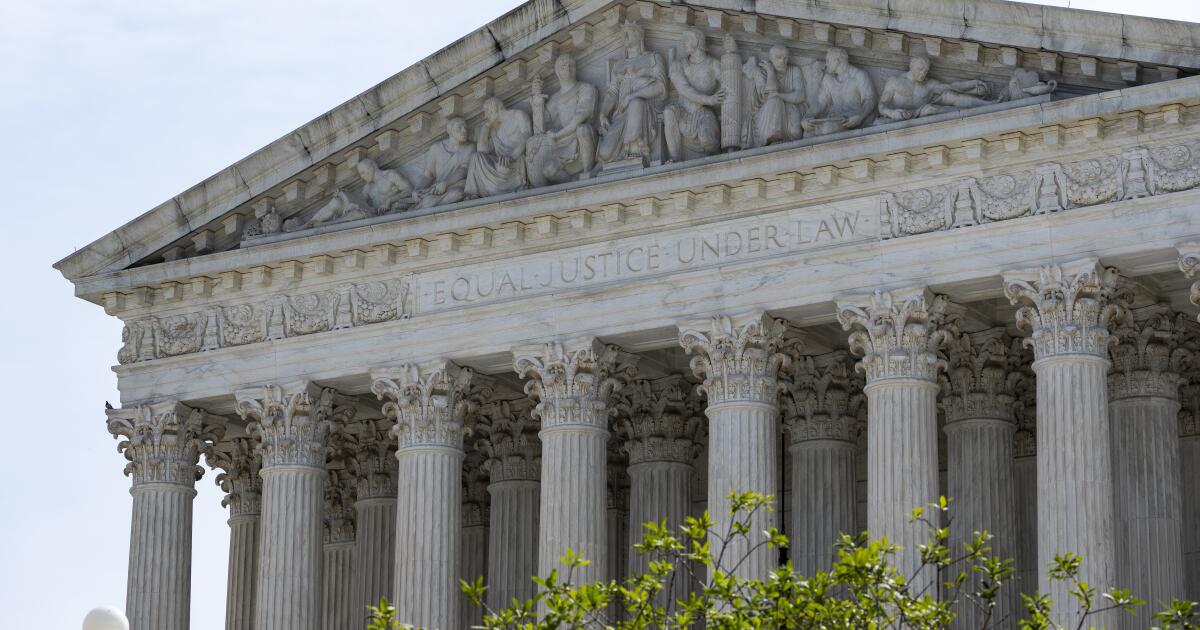WASHINGTON — The Supreme Court may be about to sharply limit the reach of so-called environmental impact statements, which gauge potential harm caused by new developments and can often block or scale back large projects.
For more than 50 years, federal law has required agencies to take a hard and broad look at the “reasonably foreseeable environmental effects” of a building or development project before approving it.
The justices sounded ready on Tuesday to reconsider that approach in a case involving a proposed 88-mile railroad line in Utah that would allow crude oil to be shipped to refineries on the Gulf Coast.
“Focus on the project,” argued Paul Clement, a Washington attorney representing county governments in support of the project. He urged justices to consider only the direct impact of the rail line’s construction, and not potential secondary impacts that are “remote in time and space.”
In their comments and questions, the justices appeared to agree.
If so, their ruling could rein in the reach of environmental impact statements, an outcome that would be welcomed by developers and condemned by environmentalists.
Three years ago, the Surface Transportation Board, the federal agency which regulates freight railroads, approved the construction of the Utah rail project
But it did not weigh the environmental impact of drilling new oil wells in northeastern Utah, the extra air pollution at the refineries on the Gulf or the danger of sending nine more trains per day along the Colorado River and through the Rockies.
Environmentalists sued along with Eagle County, Colo., and won a ruling from the D.C. Circuit Court of Appeals last year that said the board had failed to consider the “upstream and downstream” impacts on the environment.
The seven Utah counties appealed, arguing the D.C. court had gone too far.
Eight justices appeared to agree that decision should be reversed.
Justice Neil M. Gorsuch, a Colorado native who is a friend of billionaire Philip Anschutz, said last week that he would not participate in the decision. Anschutz is not a party to the case, but the Anschutz Exploration Group, which produces oil and gas in Utah, Colorado and Wyoming, submitted a friend-of-the-court brief which urged the court to limit the law’s focus to environmental effects that are under the direct control of an agency.
Clement, who represented the seven Utah counties, said the court should rein in the “bloated and anti-development” impact statements that range too broadly.
He said it made sense for the federal board to consider the railroad’s potential impact on the bighorn sheep in the area, but not “imponderables,” such as a potential rail accident hundreds of miles away or extra air pollution on the Gulf Coast.
The Center for Biological Diversity, which sued to challenge the Utah railroad, said environmental impact statements have been crucial to protecting the environment since the early 1970s. It said agencies have been on notice “to consider whether their actions will have long-term, and potentially irreversible, environmental effects.”
These impact statements permit the government and the public to weigh the harms as well as the benefits of a new development.
Wendy Park, an attorney at the center, said “communities in the Uinta Basin and the Gulf Coast will suffer the most from this oil railroad, while oil companies enrich themselves at the expense of the environment and people’s health. It’s disgraceful the railroad’s backers want federal agencies to turn a blind eye to those harms.”
